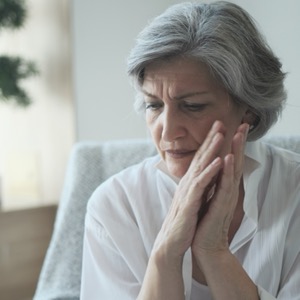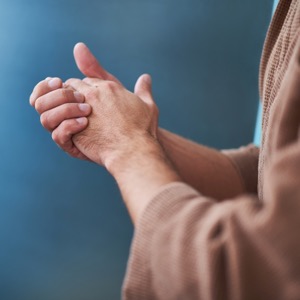By PPN News Staff
When couples in which one of the partners has rheumatoid arthritis (RA) cope with the condition together, they experience less psychological distress and have better relationships.
Engaging in joint problem-solving, joint information gathering, or sharing feelings and mutual commitment from both partners’ perspectives is key, according to a recent study in Australia (J Rheumatol 2024;51[9]:862-869).

“Dyadic coping—the process of coping that transpires between couples challenged by one partner’s illness—is an important predictor of disease adjustment and patient well-being,” said lead author Manasi Murthy Mittinty, MD, PhD, a physician scientist and senior lecturer at the College of Medicine and Public Health at Flinders University, in Bedford Park, South Australia.
“Dyadic coping contributes to a sense of togetherness, encouraging couples to develop strategies as a unit to respond to stressful events, and it represents a protective factor for minimizing the risk of divorce,” she said. “Working together as a couple is crucial for managing the challenges they face when one partner has an illness, particularly in rheumatoid arthritis.”
The study is the first in Australia to report dyadic coping from the perspective of both participants with RA and their spouses. RA patients and their spouses, 18 years of age and older, who had lived together for more than one year, were invited to participate in an online survey. The survey included the Chronic Pain Grade Scale, Dyadic Coping Inventory, Depression Anxiety Stress Scale and Dyadic Adjustment Scale. One hundred sixty-three couples participated.
The findings showed that couples who reported higher supportive dyadic coping experienced lower rates of depression, anxiety and stress. They also felt they were in a good relationship. Those who reported negative dyadic coping experienced higher rates of these emotions, and were less satisfied with their relationship. The findings were similar among just the spouses, the researchers found.
“We found that supportive dyadic coping leads to lower depression, anxiety and stress for patients, as well as improved relationship quality. In contrast, negative dyadic coping increases psychological distress and reduces relationship quality for both partners,” Dr. Mittinty said.
Approximately 18 million people worldwide are living with RA, an autoimmune condition, including nearly 456,000 Australians. RA can cause irreversible tissue damage, progressive deformity and pain.
Although management of RA has improved dramatically due to biologics, some patients are still confronted by severe physical pain and stiffness, and about 35% of people report experiencing mental and behavioral conditions, such as bipolar disorder, mania and anxiety disorder.
“By examining the interpersonal dynamics of couples grappling with chronic disease, we hope to significantly improve the quality of life for patients living with rheumatoid arthritis and their spouse.”
The focus of healthcare professionals has been to reduce patients’ illness-related distress and improving outcomes, but it is important to also understand how illness in a spouse can affect the couple’s relationship and the other spouse’s well-being, she explained.
“Our findings demonstrate the reciprocal nature of dyadic coping that transpires between patients with RA and their spouses and showcases that integrating dyadic coping training in disease management may be a valuable resource for enhanced mental health outcomes and relationship quality of couples,” she added.




